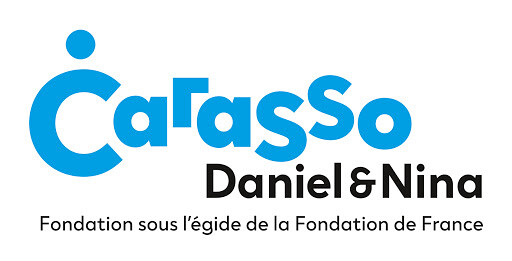Best Practice guidelines
Best Practice guidelines offer comprehensive environmental sustainability recommendations tailored to the visual arts sector. These guidelines encompass a diverse range of resources to inform and enhance practices across various crucial areas, including:
- Decarbonisation
- Shipping
- Travel
- Energy
- Packaging
- Climate justice
- Waste management
- Green teams
- Strategic climate funds
- Digital aspects
- NFTs (Non-Fungible Tokens)
- Gallery spaces
- Finance
- Effective action
Climate protection in museums
Climate protection in museums guidelines are useful resources aimed at empowering museums to participate actively in the pressing global issues of climate change and sustainability. They were developed as part of the German Museums Association’s project Climate Protection and Sustainability in Museums by a working group of 70 museum professionals and other experts, and explore how museums can become active drivers of ecological transition, guiding society through their activities and influence to foster a more sustainable future. The guide is structured to provide concrete solutions, from initiating climate impact assessments of museums, to integrating sustainability into working mechanisms, and educating on climate change.
Creative Carbon Scotland guidelines
Creative Carbon Scotland offers various valuable resources and practical tools to assist cultural practitioners in integrating environmental sustainability into their daily operations. These guides cover a diverse range of topics, including:
- Preventing, reducing & recycling waste
- Energy
- Water
- Measuring your travel
- Writing a sustainable travel policy
- Climate justice for artists and collaborators
- Climate policy
- Understanding digital emissions
- Making plans for COP26
- Adapting to climate change
Creative Responses to Sustainability | Green Guides
Creative Responses to Sustainability is a comprehensive collection of country-specific guides published by the Asia-Europe Foundation (ASEF) on its arts platform, culture360.ASEF.org, since 2015. Each guide offers an insightful overview of pioneering artists and cultural organisations that engage with sustainability in their artistic pursuits. These guides delve into the fundamental approaches, challenges, and emerging trends of integrating sustainability into arts and culture across diverse contexts. They showcase exemplary practices at the intersection of arts and sustainability as adaptable models for various settings. The guides also spotlight arts initiatives, accompanied by an interactive country map featuring linked organisations. Over the period from 2015 to 2021, ASEF has produced eight guides spotlighting the creative responses to sustainability in different nations and cities. The list includes Singapore (2015), Korea (2016), Indonesia (2017), Australia (2018), Portugal (2019), Spain (2019), and the UK (2021). Additionally, a spin-off within this series explored sustainability in the context of Berlin (2017). Diverse experts wrote and researched these guides: Australia and Spain: Claire Wilson; Berlin: Yasmine Ostendorf, Ecologic Institute, Green Art Lab Alliance; Indonesia, Korea and Singapore: Yasmine Ostendorf; Portugal: Ci.CLO Bienal Fotografia do Porto; United Kingdom: Invisible Flock. Collaborative efforts with numerous partners bolstered these expert insights.
Culture Beyond Plastic: Understanding and Eliminating
As part of the Arts Council England programme, this briefing from Julie’s Bicycle explores the environmental issues associated with plastics, and what the creative sector can do to tackle plastic pollution, with practical tips and a series of inspiring case studies from across the UK.
Simply Do It. Compass for Sustainable Production in the Cultural Sector (Einfach! Machen. Ein Kompass für ökologisch nachhaltiges Produzieren im Kulturbereich)
Simply Do It empowers artists and cultural institutions to take direct, informed, ecologically sustainable action by unveiling critical information and assembling essential links. Through its comprehensive chapters (Prevent, Be mobile, Concern, Provide, Communicate, and Dispose of) the guide equips individuals and organisations with detailed insights, innovative ideas, and practical advice on implementing impactful measures. It addresses the following pressing questions: Where to embark on this transformative journey? How can the cultural sector effectively utilise public funds while aligning with eco-friendly principles? What falls within the bounds of grant law? The compass acts as a guiding force not only during project execution but also in the eco-conscious reshaping of entire organisations. It ensures adherence to ‘legally sound’ practices, conforming to the latest government regulations governing the utilisation of public funds. Opportunities abound for exploring enhanced ecological practices, and this guide provides the catalyst to initiate the journey.
Environmental Policy and Action Plans: An Overview
Environmental Policy and Action Plans: An Overview presents the step-by-step process of crafting an environmental policy and action plan tailored to cultural organisations. This guide equips readers with practical how-to guides, tips, customisable templates, illuminating examples, and a wealth of resources. Its overarching aim is to facilitate the transformation of society and culture within the context of the ongoing climate crisis. The guide serves as a roadmap for developing an environmental policy, outlining the sequential stages of the process. It also provides essential insights into structuring action plans, expert tips, and pre-designed templates for a streamlined implementation. The guide showcases real-world examples from policies and action plans derived from organisations of varying types and sizes.
European Booklet for Green Productions
This booklet was developed within the framework of the EU-funded project Strengthening Capacities of Social Partners to Meet the Challenges of Environmental Sustainability in Film and TV Productions to facilitate the adoption of environmentally-sustainable working practices in European audiovisual productions in line with the objectives of the European Green Deal, which emphasises the importance of active social dialogue to help anticipate and successfully manage environmental challenges.
European Green Festival Roadmap 2030
The European Green Festival Roadmap 2030 was developed by YOUROPE as part of its three-year project Future-Fit Festivals (3F) in collaboration with A Greener Future (AGF) and Greener Events Norway as well as YOUROPE’s GO Group (Green Operations Europe) think tank. The guidelines are based on the requirement of the EU Green Deal: cutting emissions by at least 55% by 2030 while also considering the UN SDGs and industry requirements. The European Green Festival Roadmap 2030 helps the festival sector to identify appropriate measures to fight emissions and other harmful environmental impacts, set clear goals, and think significantly and long-term. The Roadmap provides a comprehensive framework for the ambitious sustainable improvement of cultural events, from management structures to specific practical measures in the various action fields of the creation and production process. This is the first pan-European publication jointly developed and published by and for the festival sector. It can serve as a relevant tool for organisers of festivals and other significant (open-air) events, including far beyond the borders of the EU.
The Green Mobility Guide – a guide to environmentally sustainable mobility for performing arts
The Green Mobility Guide offers practical recommendations for professionals across the performing arts. It also provides case studies and resources, and includes Julie’s Bicycle “IG tool” for tracking carbon emissions while on tour. It is an attempt to address the core problem (moving productions contingent on travel and transportation) as sustainably as possible. Commissioned by On the Move, the Green Mobility Guide was researched and delivered by Julie’s Bicycle.
A guide towards circular festivals (GUÍA para avanzar hacia festivales de música circulares)
This guide seeks to facilitate decision-making for those who promote, organise, and produce festivals, by integrating circularity criteria into the management and minimisation of waste, through the incorporation of a series of mandatory measures as well as other existing good practices in the sector.
#PhilanthropyForClimate: Implementation Guide
The Implementation Guide is published by the global movement #PhilanthropyForClimate within the International Philanthropy Commitment on Climate Change. The International Philanthropy Commitment on Climate Change calls for all foundations to act on the climate emergency regardless of their mission, status, or geographic location. The signatories of the International Commitment pledge to take action under the seven pillars of the Commitment, for which this Implementation Guide outlines and suggests actions. Designed to inspire and support foundation signatories as they embark on their journey of change, it is divided into seven sections, one for each pillar. Each unit includes additional detail to better grasp its importance, and suggests actions at three levels: Getting Started, Building Momentum, and Demonstrating Leadership. These are offered as a choice of options, not a list of requirements.
SHIFT Eco-Guidelines for Networks
The “SHIFT Eco-Guidelines for Networks” targets the ecological footprint of international cultural networks and platform organisations. These guidelines serve as a reference for network organisations seeking to minimise their environmental impact, while encouraging sustainable practices, and setting an example for their members and peers. The guidelines are openly accessible and intended to drive structural change within the cultural sector. Tailored for cultural network organisations, they address various aspects of environmental impact, encompassing operations, policies, activities, and governance. Special emphasis is placed on areas such as travel and events, which are significant sources of carbon emissions. The SHIFT Eco-Guidelines, initiated by the SHIFT partners and developed in collaboration with the Green Leisure Group and Creative Carbon Scotland, represent a crucial step in addressing the lack of environmental certification options. They are structured as ecolabel guidelines, and have the potential to evolve into a certification scheme for cultural network organisations (as of 2023, organisations can obtain SHIFT Culture Eco certification). Participating organisations need to comply with the SHIFT Eco-Guidelines on which the certificate is based, and consider the capacity required to implement all the mandatory norms. Along with taking the necessary time to implement the guidelines, organisations need to build a relationship with a buddy organisation, prepare for and attend a dedicated workshop, carry out a self-review and a peer review for their buddy organisation and undergo an external audit. The certificate implies commitment to the scheme for a minimum of two years.
Sustainable events guide
The pressing global concern of climate change impacting every corner of our world led Manchester City Council to set a remarkable goal in 2018: to achieve zero carbon status by 2038. In response to this challenge, Manchester City Council, in collaboration with Julie’s Bicycle, designed seven comprehensive sustainable events guides tailored to Manchester and all UK cities. These guides empower event organisers, suppliers, service providers, and venues to proactively contribute to the zero carbon challenge. These resources help them evaluate their event-related activities, share best practices, and collectively advance Manchester and other UK cities towards the zero-carbon ambition by 2038. Available for free download, the seven guides span a range of areas including:
- Major outdoor events
- Small outdoor events
- Indoor events
- Community events
- Food and drink traders
- Production suppliers
- Waste and cleansing services
The Green Artist Rider
The Green Artist Rider was designed to harmonise the needs of artists with the evolving movement among venues and promoters to curtail waste and instil ethical purchasing practices across their productions, operations, and communications. The essence of the Green Artist Rider is to minimise waste, eliminate single-use plastics, foster positive social influences, and decrease the overall ecological footprint. As a vital bridge between artists, promoters, and venues, the Green Artist Rider is pivotal in transforming outdated practices into more sustainable alternatives. A Greener Future offers comprehensive support for artists, promoters, and venues aiming to implement the rider’s stipulations and beyond, whether new to these practices or seeking to enhance and customise their initiatives for a greener live entertainment industry. This document stands as a dynamic and open-source resource.
WASTE & MATERIALS. Collections Care: Packing, Storage & Transport. A Step-By-Step Guide for Sustainable Action. Volume I
This guide is intended to provide sustainability information to make the best possible decisions for the needs of organisations, artists and cultural professionals working with cultural heritage, whether they are a preparator, conservator, registrar, curator, gallerist or artist. The broad scope of this research includes many roles and responsibilities within organisations and businesses.


